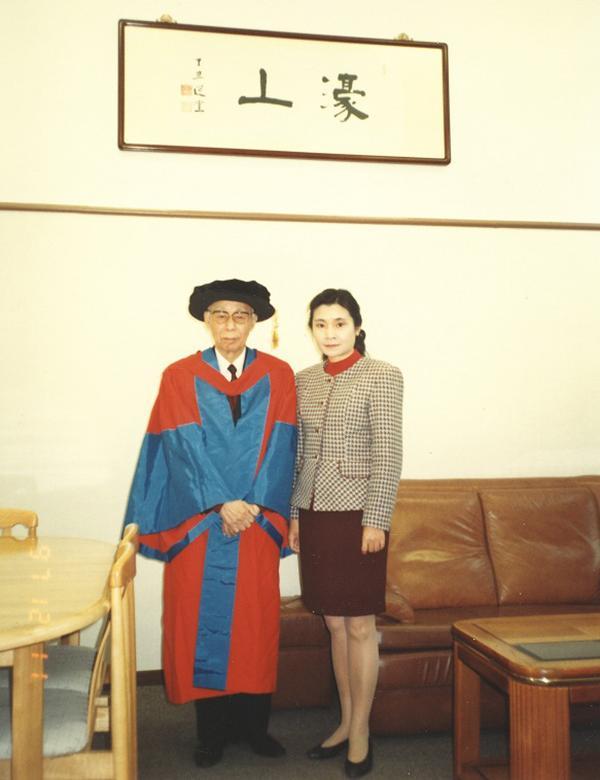极简英语语法——常用时态一网打尽

一般现在时
动词形式:do/does am/is/are
经常性或习惯性的动作
The festival takes place every two years. 这个节日每两年举办一次
I go to school at 7:00 every morning except for the weekends. 周末之外,我每天早晨七点去上学。
存在的状态、性质、特征
I am good at speaking English. 我擅长于说英语
The pen runs out of ink. 钢笔没墨水了
真理
Action speaks louder than words. 行动比言语有说服力。
The earth goes around the sun. 地球为这太阳转
虽然主句时代决定从句时态,客观真理还是一般现在时
Galileo insisted that the earth goes around the sun. 伽利略坚称地球围着太阳转。
特殊用法
状语从句中,主句将来时从句一般现在时
I'll go with you as soon as I finish my works. 在做完我的工作后,我将随你走。
There will be no turmoil when the king emerge. 当王者降临,再没有颠沛流离。
祈使句是将来概念
Don't try to run before you get used to walk. 在你习惯走路之前,不要试图跑。
一般过去式
动词形式: was/were/did,表示过去的动作或状态
过去的事实
She was ill when I last saw her. 我上次见她时,她生病呢。
He had a quarrel with his mother this morning. 他今早和母亲吵架了。
过去经常发生的动作,和often, always连用
I always got up early on weekdays. 我过去平日一直早起
She often came to visit me. 她过去经常来拜访我 。
延续性动词的过去式表示过去持续的动作
I lived in the countryside for 10 years.
He always kept his words. 他一直说话算数。
过去的习惯
He used to go for a walk after supper. 他过去常常晚饭后走一走 (现在不了)
He used to say something to her before he fell asleep. 他过去常在入睡前和她说些话。
现在进行时
变化规则 be+doing:
现在正在发生的
I am working. 我正在工作。
He is talking to her. 他正在和她说话。
阶段性的状态
I am helping my father on the family business these days. 这些天我在帮爸爸处理家族生意。
We are having exam this week. 我们本周考试。
和always, constanly,continuously,forever等连用表示经常重复的动作,含赞赏,责怪,厌恶之意
He is always thinking of others first. 他总是先为别人着想。
You are forever forgetting you homework. 你总是忘了写作业
进行表将来,趋向性动作 come ,go,see,meet等才可以
I am going home tomorrow. 我明天回家。
一般将来时

相同之处是不可用于条件句
1a: There will be a grand ceremony: 这里将有盛大庆典。
2a: I am going to make you my wife. 我将让你成为我的妻子。
1b: A: Have you told him about the change of the plan? 你告诉他计划改变的事了吗?
B: Oh, I forgot, I will call him now. 哎呀,我忘了,我现在打电话告诉他。
1c:Men will die without air. 没有空气人会死。
2c:It looks as if it's going to snow. 看起来要下雪了
常用句型,祈使句do sth and you will
Study hard and you will be a straight A student. 好好学习,你会变学霸。
The mistakes you commit now will be repaid later in life. 今日所犯之错,将来会反噬你。
be to
安排,计划要做的
The CET 4 is to be held at the next June. 四级考试将在下个6月举行。
命令语气
You are to clean the shoes for me. 你tm是给我擦鞋的。
be about to
表示马上发生,常用于be about to...when结构
I was about to beat him when his father appeared. 我正要揍他,他爹来了。
Titanic was about to sail. 泰坦尼克号将要起航。
现在完成时
动词形式: have/has done
表示过去发生的事对现在的影响或结果
I have finished all my homework. 我已经把全部作业写完了。
Have your problem been solved? 你的问题已经被解决了吗?
You have gone , and made me such a fool. 你已远走,让我成傻瓜。
过去发生的,持续到现在的动作,必须是延续性动词
I have lived here for 10 years. 我已在此地住了十年。
I have been here waiting for you for so long. 我已在此等你很长时间(现在还在等)
have been to 和 have gone to的区别
have been to表示去过并回来了
have gone to 表示去过还没回来
主将从现
I will give my opinion when I have investigated the problem thoroughly. 在彻查问题之后,我将给出我的意见。
常用句型
This is/that is/it is the first time/序数词/最高级 sb have/has done sth.
This is the first time he have spoken with a girl without a blush. 这是他第一次和女的说话不红脸。
This is the best gift I have received.这是我接受过得最好的礼物。
It has been +一段时间since从句
It is over 10 years since I left my hometown. 我离家已经超过十年。
现在完成进行时
动词形式:have/has been doing
表示过去的动作一直持续到现在
They have been studying this problem. 他们一直在研究这个问题。(路还在修)
What has she been doing since she came to China? 来中国后,她一直在干啥?
The teacher has been telling the students how to study English since 8. am. 老师在8点开始就一直教我们怎么学英语。
We have been studying for 3 hours, let play for a while. 我们一直学习了三小时,玩一会儿吧。
过去完成时
动词形式: had done
表示过去某个时间点之前完成的动作
She had learnt English before kindergarten. 上幼儿园之前她就学英语了。
By the time she entered kindergarten she had learnt 800 words. 到入幼儿园时,她已经学了八百个单词了。
表示延续
He said he had been a college student for 2 years. 他说他已经成为一个大学生2年了。
固定句型
It was +最高级或序数词
Falling in love with her was the best thing I had done. 与她相爱是我做过的最好的事。
It was the third time he had made the same mistake. 这是他第三次犯同样错误。
hardly... when..., no sooner...then...
Hardly had the bell rung when He started running out of his classroom.
No sooner had the bell rung then he started running out of his classroom.
下课铃刚响,他就冲出教室。
表示过去未实现的希望或计划 had hoped, meant, wanted, planned, intended
I had intended to visit you last year, but the illness prevented me. 我本想去年去看你,可是大病一场没去成。
I had wanted to help you, but you betrayed me before took actions. 我本来想帮你的,但是你在我行动之前就背叛我了。
by 引导的时间状语
By the time Tom was released from prison, his son had married. 在汤姆出狱的时候,他的儿子都结婚了。
过去进行时
动词形式: was/were doing
表过去某个时间点正在发生,或者过去某个时间段正在进行的动作。
She was reading Hamlet when I came in. 我进来时,他正在读哈姆雷特。
I was playing LOL this time yesterday. 昨日的这个时候,我正在玩英雄联盟。
其它用法同现在进行时
阶段性
I was watching TV all day last weekend. 上个周末,我整日在看电视。
趋向性动作,进行表将来
I did not want to stay in that school because one of my best friends were leaving. 当初我不想待在那个学校 是因为一个好朋友将要离开。
I heard that you were coming to visit me. 当初我听说你将要来看我。
重复动作含感情意味
She was forever working hard. 他一直努力工作,表示喜欢
过去进行时需要过去的时间支点,如时间状语,when从句
过去将来时
动词形式: would do, was were going to do
从过去的某个时间看将来要发生的动作或状态
He didn't expect that we would all be there. 当初他没料想到我们会出现在那里。
He finally took the sword. In there years, there would be disasters. 他终究还是执剑了,三年内,必有灾殃。(预言说他终生不可执剑,否则天下大乱)
将来进行时
动词形式: will/shall be doing
表示将来某一时刻发生并延续的动作
将来某一时刻发生的动作
Will we still being together this time 10 years later? 10年后的今天,我们还会在一起吗?
I will be flying to New York this time tomorrow. 明日此时,我将飞赴纽约。
Can I visit you at 10 o'clock this morning? 今天上午10点我能拜访你吗?
I am sorry, but by then I will be flying to Singapore. How about the next week? 对不起,那时我会在飞往新加坡的飞机上,下周怎么样?
表示主观的决心和意志
behave yourself,I will be watching you. 规矩点,我将会看着你
对将来的打算或预测
Have this cake, and you will not be feeling hungry. 吃完这块蛋糕你就不觉得饿了。
The class will be over, and I will be returning home. 课程将要结束,我将要回家。
表结果
Go away or you are crying for your mother. 快走,否则打的你哭着找妈妈。






















评论